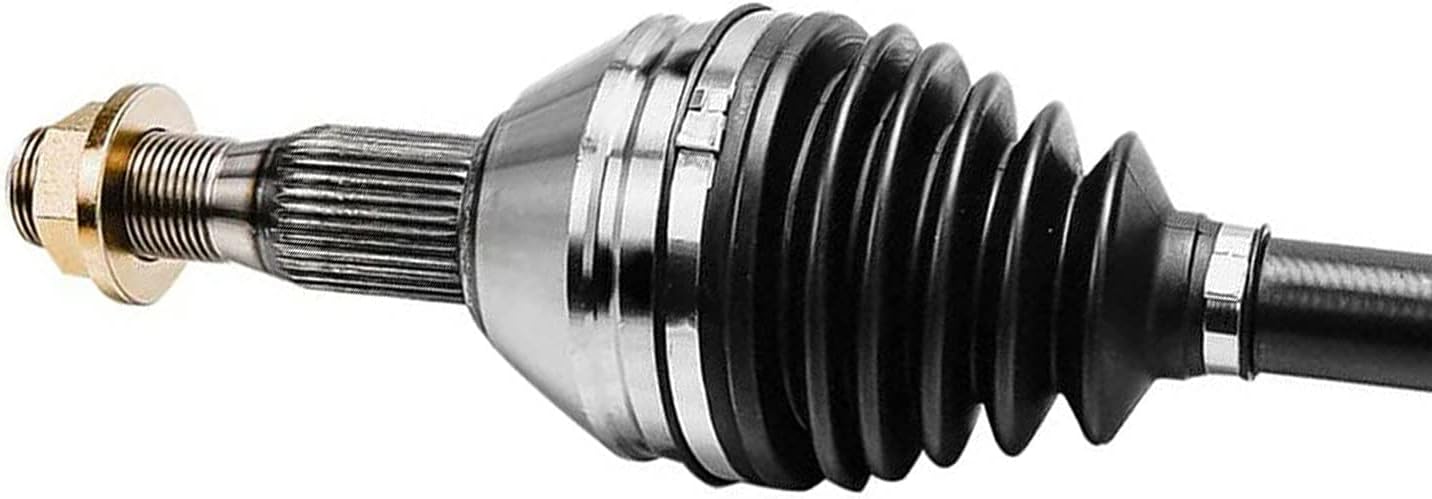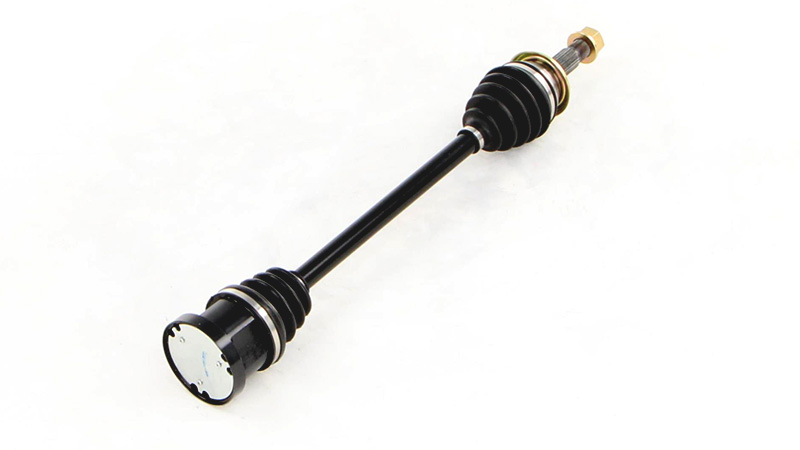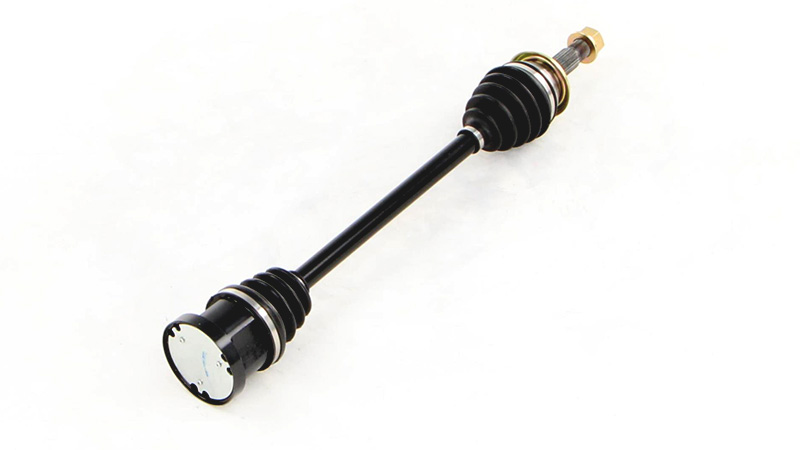Product Description
Product Description
Hot Sale Truck Spare Parts Truck Axle
Our trailer axles are suitable for American and German trucks. We have many models. We can produce American
& German Axles of various specifications according to your drawings, sample or specific parameters you give us.
|
Product Name |
Trailer Axle |
|
Type |
American drum type |
|
Capacity |
13T, 15T, 16T, 20T |
|
Total Length |
About 2185 mm (According to the model) |
|
Weight |
About 330 KG (According to the model) |
|
Material |
Iron |
|
Color |
Black |
|
Brand |
XH |
|
Package |
Carton, wooden box |
|
Quality |
Super |
|
Port |
China Port |
|
Payment |
T/T, L/C, D/P, D/A, MoneyGram, Credit Card, PayPal, Western Union |
|
Service |
OEM, ODM |
- One high-quality low-alloy axle tube has strong carrying capacity and high bendng strength .
- The axle tube tempered as a whole and then quenching optimized which made by finishing high-precision machinery .
- Evvironmentally friendly Non-asbestos brake shoe which increase the wear life of more than 25% .
- Brake componets has strong interchangeability , S-camshaft , so that have more flexible and reliable brake action .
- Adopt heavy-duty bearings which specially used for heavy vehicles has strong interchangeability .
- The unique beauty with O-ring of the steel wheel cover has special good performance .
- ABS optinal .
- Integral heat-formed alloy-steel axle beam, advanced forming technology thickened the spindle wall. Wholly heat
- treatment for the axle beam, to ensure strength in load capacity and light in weight;
- Advanced bearing journals and radius heat hardening increase the strength and prolong the life of the spindles;
- PLC-controlled automatic welding for brake brackets, pre-machined brake shoe assembly to guarantee reliable
- brake performance;
- High performance premium non-asbestos brake lining;
- Grease lubricant is supplied by Mobil;
- Spare parts interchangeable with the popular axles in market.
/* January 22, 2571 19:08:37 */!function(){function s(e,r){var a,o={};try{e&&e.split(“,”).forEach(function(e,t){e&&(a=e.match(/(.*?):(.*)$/))&&1
| After-sales Service: | 12months |
|---|---|
| Warranty: | 12months |
| Type: | Trailer Parts |
| Samples: |
US$ 1000/Piece
1 Piece(Min.Order) | Order Sample |
|---|
| Customization: |
Available
| Customized Request |
|---|
.shipping-cost-tm .tm-status-off{background: none;padding:0;color: #1470cc}
|
Shipping Cost:
Estimated freight per unit. |
about shipping cost and estimated delivery time. |
|---|
| Payment Method: |
|
|---|---|
|
Initial Payment Full Payment |
| Currency: | US$ |
|---|
| Return&refunds: | You can apply for a refund up to 30 days after receipt of the products. |
|---|

Where can I buy axle seals for preventing fluid leaks in my vehicle’s axles?
When it comes to purchasing axle seals to prevent fluid leaks in your vehicle’s axles, there are several options available. Here are some places where you can buy axle seals:
1. Automotive Parts Stores:
Visit local automotive parts stores such as AutoZone, Advance Auto Parts, O’Reilly Auto Parts, or NAPA Auto Parts. These stores typically have a wide range of automotive seals, including axle seals, in stock. You can either visit the physical store or check their online catalogs to find the specific axle seal you need for your vehicle.
2. Dealerships:
If you prefer to purchase genuine OEM (Original Equipment Manufacturer) axle seals, consider visiting a dealership authorized by your vehicle’s manufacturer. Dealerships often carry original parts that are specifically designed for your vehicle make and model. Contact your local dealership’s parts department to inquire about the availability of axle seals for your vehicle.
3. Online Retailers:
Online retailers like Amazon, eBay, and RockAuto offer a wide range of automotive parts, including axle seals. These platforms provide the convenience of browsing and purchasing axle seals from the comfort of your home. Make sure to check the product details, specifications, and customer reviews before making a purchase.
4. Local Mechanics and Repair Shops:
Local mechanics and repair shops often have access to a variety of automotive seals, including axle seals. They can source and install the appropriate seals for your vehicle during maintenance or repair services. Reach out to trusted local mechanics or repair shops in your area and inquire about their availability and pricing for axle seals.
5. Manufacturer’s Online Stores:
Some vehicle manufacturers have their own online stores where you can purchase genuine OEM parts, including axle seals. Visit the official website of your vehicle’s manufacturer and look for their online parts store. You can search for the specific axle seal needed for your vehicle using your vehicle identification number (VIN) or the model details.
6. Salvage Yards:
If you are looking for cost-effective options or rare axle seals, salvage yards can be an option. Salvage yards specialize in selling used parts salvaged from vehicles. However, when purchasing from salvage yards, it’s important to carefully inspect the condition and compatibility of the axle seals to ensure they are suitable for your vehicle.
When purchasing axle seals, make sure to provide accurate information about your vehicle’s make, model, and year to ensure you get the correct seals that fit your vehicle’s axle specifications. Additionally, consider factors such as the quality of the seals, warranty options, and return policies when making your purchase decision.
Remember, if you are unsure about the specific axle seals required for your vehicle or need assistance with installation, it is recommended to consult with a qualified mechanic or technician who can guide you in selecting the right seals and ensure proper installation to prevent fluid leaks in your vehicle’s axles.

What is the difference between front and rear axles in a typical vehicle?
In a typical vehicle, there are distinct differences between the front and rear axles due to their respective roles and functions. Here are the key differences:
- Position:
- Steering:
- Driving:
- Suspension:
- Load Distribution:
- Driving Characteristics:
The main difference between the front and rear axles is their position in the vehicle. The front axle is located in the front of the vehicle, while the rear axle is positioned at the rear. This positioning is determined by the vehicle’s drivetrain configuration.
The front axle is responsible for steering the vehicle. It is connected to the steering system, allowing the driver to control the direction of the vehicle. The front axle typically includes components such as steering knuckles, tie rods, and steering linkages.
The rear axle is primarily responsible for driving the vehicle’s wheels. It receives power from the engine through the transmission or differential and transfers that power to the rear wheels. The rear axle may include components such as axle shafts, differential gears, and wheel hubs.
Both the front and rear axles play a role in the vehicle’s suspension system, but their configurations and functions differ. The front axle typically incorporates suspension components such as control arms, struts, or independent suspension systems to provide better handling, stability, and ride comfort. The rear axle may have a solid axle setup or independent suspension depending on the vehicle’s design.
The load distribution on the front and rear axles varies. In a typical vehicle, the front axle carries the weight of the engine, transmission, and a portion of the vehicle’s weight due to the front-end weight bias. The rear axle bears the weight of the vehicle’s occupants, cargo, and a portion of the vehicle’s weight. This distribution helps maintain proper balance and stability during acceleration, braking, and cornering.
The differences between the front and rear axles can influence the vehicle’s driving characteristics. The front axle’s role in steering affects the vehicle’s maneuverability and responsiveness. The rear axle’s responsibility for driving the wheels affects traction, acceleration, and stability, particularly in rear-wheel drive or four-wheel drive vehicles.
It’s important to note that the specific configurations and characteristics of front and rear axles can vary depending on the vehicle’s make, model, and drivetrain system. Different types of vehicles, such as front-wheel drive, rear-wheel drive, or all-wheel drive, may have variations in axle design and functionality.
Understanding the differences between the front and rear axles is essential for proper maintenance, repairs, and modifications of the vehicle’s drivetrain and suspension systems. If you have specific questions about your vehicle’s axles, it’s recommended to consult your vehicle’s owner’s manual or seek advice from qualified mechanics or automotive professionals.

What are the factors to consider when choosing an axle for a custom-built vehicle?
Choosing the right axle for a custom-built vehicle is crucial for ensuring optimal performance, durability, and safety. Here are several key factors to consider when selecting an axle for a custom-built vehicle:
- Vehicle Type and Intended Use:
- Axle Type:
- Weight Capacity:
- Axle Ratio:
- Braking System Compatibility:
- Suspension Compatibility:
- Aftermarket Support:
- Budget:
Consider the type of vehicle you are building and its intended use. Factors such as vehicle weight, power output, terrain (on-road or off-road), towing capacity, and payload requirements will influence the axle selection. Off-road vehicles may require axles with higher strength and durability, while performance-oriented vehicles may benefit from axles that can handle increased power and torque.
Choose the appropriate axle type based on your vehicle’s drivetrain configuration. Common axle types include solid axles (live axles) and independent axles. Solid axles are often used in heavy-duty applications and off-road vehicles due to their robustness and ability to handle high loads. Independent axles offer improved ride quality and handling characteristics but may have lower load-carrying capacities.
Determine the required weight capacity of the axle based on the vehicle’s weight and intended payload. It’s crucial to select an axle that can handle the anticipated loads without exceeding its weight rating. Consider factors such as cargo, passengers, and accessories that may contribute to the overall weight.
Choose an axle ratio that matches your vehicle’s powertrain and desired performance characteristics. The axle ratio affects the torque multiplication between the engine and wheels, influencing acceleration, towing capability, and fuel efficiency. Higher axle ratios provide more torque multiplication for improved low-end power but may sacrifice top-end speed.
Ensure that the chosen axle is compatible with your vehicle’s braking system. Consider factors such as the axle’s mounting provisions for brake calipers, rotor size compatibility, and the need for an anti-lock braking system (ABS) if required.
Consider the compatibility of the chosen axle with your vehicle’s suspension system. Factors such as axle mounting points, suspension geometry, and overall ride height should be taken into account. Ensure that the axle can be properly integrated with your chosen suspension components and that it provides sufficient ground clearance for your specific application.
Consider the availability of aftermarket support for the chosen axle. This includes access to replacement parts, upgrade options, and technical expertise. A robust aftermarket support network can be beneficial for future maintenance, repairs, and customization needs.
Set a realistic budget for the axle selection, keeping in mind that high-performance or specialized axles may come at a higher cost. Balance your requirements with your budget to find the best axle option that meets your needs without exceeding your financial limitations.
When choosing an axle for a custom-built vehicle, it’s recommended to consult with knowledgeable professionals, experienced builders, or reputable axle manufacturers. They can provide valuable guidance, assist in understanding technical specifications, and help you select the most suitable axle for your specific custom vehicle project.


editor by CX 2024-04-29